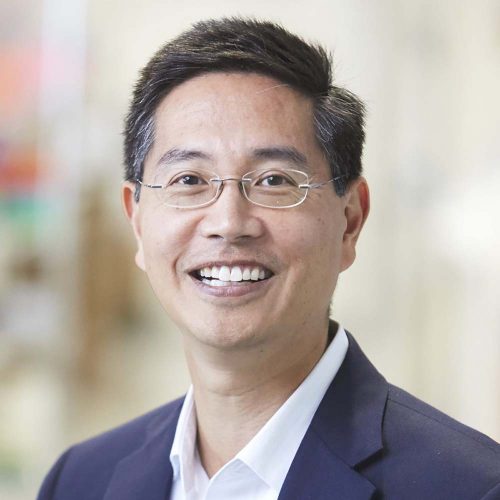Biotech Developing “Tissue Therapeutics” to Treat Diseased Organs Launches from BU and MIT Labs
Satellite Bio, a regenerative medicine company cofounded by College of Engineering’s Christopher Chen, has received $110 million in funding
By Andrew Thurston

Greater Boston has become the nation’s biotech hub—the Silicon Valley of life sciences, according to some—and Massachusetts is now reportedly home to more than 1,000 biotech companies, employing more than 80,000 people. One of the newest multimillion-dollar firms helping to drive the boom has its roots in a Boston University lab. Satellite Bio—fueled by technology codeveloped by BU biomedical engineer Christopher Chen—launched in April after announcing it had secured $110 million in venture funding.
The company promises to pioneer “the next frontier of regenerative medicine” by developing tissue implants that can help treat or replace diseased organs. Satellite Bio was cofounded by Chen, a BU William F. Warren Distinguished Professor and a College of Engineering professor of biomedical engineering, and Sangeeta Bhatia of Massachusetts Institute of Technology.
The company says its novel technology, which it calls “tissue therapeutics,” would allow scientists to program cells and aggregate them “into novel, implantable therapies, called ‘satellites,’ which can be introduced to patients to repair, restore, or even replace dysfunctional or diseased tissue or organs.” The satellites can either act like a supercharged Band-Aid, helping to speed rehabilitation, or more like a power generator, taking on some of an organ’s typical function to get the body running closer to its optimal level.
Read the full story on BU’s The Brink.